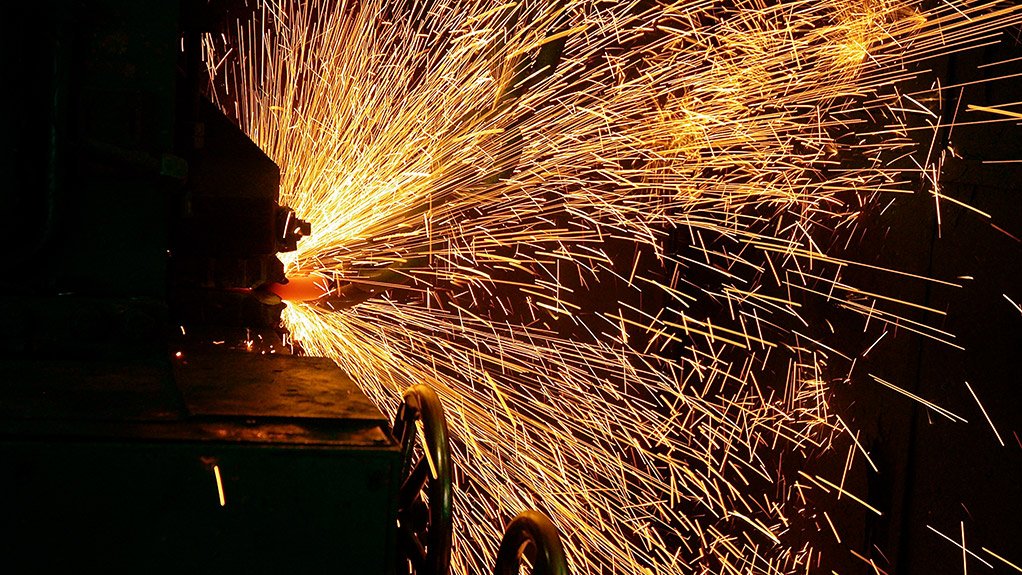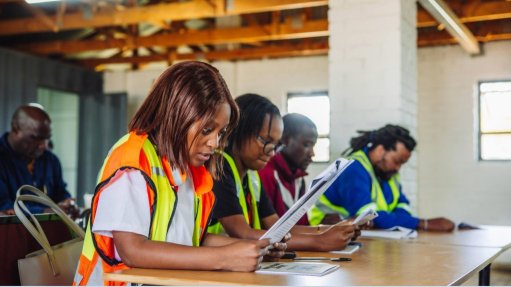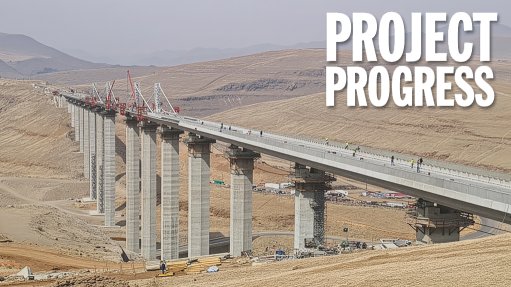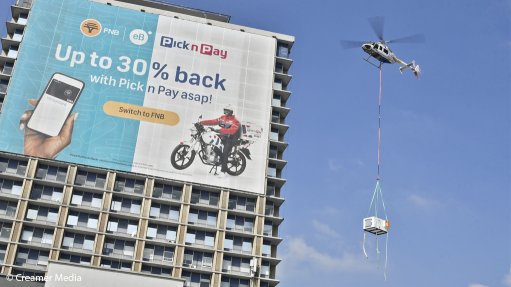Deterioration in headline PMI worrying, says Seifsa
The seasonally adjusted Absa Purchasing Managers’ Index (PMI) erased most of last month’s gain and fell to 45.4 index points in May from 47.2 points in April, which – excluding the drop to 45 points in March – is the weakest level since October 2018.
The decline brought the average PMI for the first two months of the second quarter to 46.3 points, which is below the first-quarter average of 47.1 points.
In a statement on Monday, Absa noted that the decline did not bode well for a recovery in activity in the manufacturing sector given that output had already declined notably on a quarter-on-quarter basis in the first quarter.
Steel and Engineering Industries Federation of Southern Africa (Seifsa) economist Marique Kruger commented in a separate statement that the dip in overall business activity in the broader manufacturing sector was disappointing, adding that the deterioration in the headline PMI, which was underpinned by several subindices trending below the neutral 50-point mark, was worrying.
Three of the major subcomponents declined when compared with April, while the suppliers’ deliveries and employment indices rose.
The index tracking suppliers’ performance was the only main subcomponent to remain above the neutral 50-point mark.
Investec, meanwhile, said manufacturers had experienced some reprieve in terms of operating costs, with this subindex having declined to its lowest level in a year. "This could be linked to the diesel price remaining unchanged in May," the financial services company stated, adding that expectations of a subdued oil price, combined with a stable to stronger rand exchange rate, would manifest in fuel price reductions.
Absa further pointed out that, despite improving somewhat in May, the employment index stayed well below the neutral mark at 43.2 points.
The new sales orders index dipped lower in May, to 44.4 points, after an encouraging improvement in April.
The PMI indicates that export orders remained positive, which suggests that the downturn came from weaker domestic demand. Absa said the deterioration in orders most likely contributed to a sharp drop in business activity.
Investec noted that actual manufacturing production had contracted in the first quarter, adding that the sector was expected to have detracted from gross domestic product. "Weak demand conditions and extensive electricity load-shedding contributed to the poor performance," the firm added.
"Global headwinds, particularly the slowdown in global trade growth, are weighing on the local production sectors while persistently weak domestic economic sentiment is manifesting in deficient rates of private sector investment activity and restrained consumer spending," Investec stated.
The inventories index also weighed on the headline PMI, as the index fell further to 41.6 points in May, following a steep decline in April.
Absa noted that its index tracking expected business conditions in six months’ time remained unchanged at 62.3 index points – more than four points above the average recorded during 2018.
This indicated that respondents remained fairly optimistic that conditions would improve going forward, Absa pointed out.
“Somewhat surprisingly, the purchasing price index declined further in May. Whereas factory-gate price inflation, as measured by the Producer Price Index, has increased of late, the PMI price index is currently at the lowest level in a year. It is not immediately clear what is driving the difference,” Absa stated.
However, the bank said the PMI might reflect the general lack of price pressure in the South African economy as firms absorb rising input costs to protect sales volumes.
Comments
Announcements
What's On
Subscribe to improve your user experience...
Option 1 (equivalent of R125 a month):
Receive a weekly copy of Creamer Media's Engineering News & Mining Weekly magazine
(print copy for those in South Africa and e-magazine for those outside of South Africa)
Receive daily email newsletters
Access to full search results
Access archive of magazine back copies
Access to Projects in Progress
Access to ONE Research Report of your choice in PDF format
Option 2 (equivalent of R375 a month):
All benefits from Option 1
PLUS
Access to Creamer Media's Research Channel Africa for ALL Research Reports, in PDF format, on various industrial and mining sectors
including Electricity; Water; Energy Transition; Hydrogen; Roads, Rail and Ports; Coal; Gold; Platinum; Battery Metals; etc.
Already a subscriber?
Forgotten your password?
Receive weekly copy of Creamer Media's Engineering News & Mining Weekly magazine (print copy for those in South Africa and e-magazine for those outside of South Africa)
➕
Recieve daily email newsletters
➕
Access to full search results
➕
Access archive of magazine back copies
➕
Access to Projects in Progress
➕
Access to ONE Research Report of your choice in PDF format
RESEARCH CHANNEL AFRICA
R4500 (equivalent of R375 a month)
SUBSCRIBEAll benefits from Option 1
➕
Access to Creamer Media's Research Channel Africa for ALL Research Reports on various industrial and mining sectors, in PDF format, including on:
Electricity
➕
Water
➕
Energy Transition
➕
Hydrogen
➕
Roads, Rail and Ports
➕
Coal
➕
Gold
➕
Platinum
➕
Battery Metals
➕
etc.
Receive all benefits from Option 1 or Option 2 delivered to numerous people at your company
➕
Multiple User names and Passwords for simultaneous log-ins
➕
Intranet integration access to all in your organisation




















